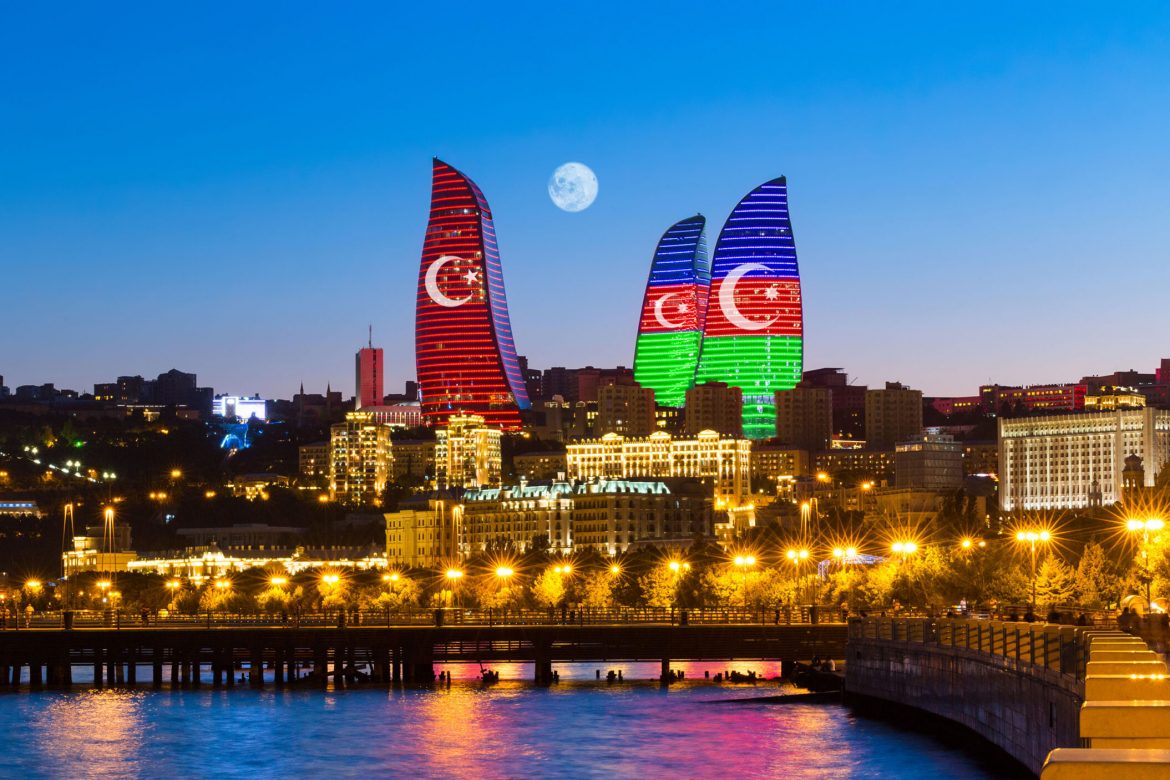Azerbaijan is set to host next year’s climate summit after fraught negotiations.
Under UN rules it was eastern Europe’s turn to take over the rotating presidency but the groups need to unanimously decide on the host. Russia had blocked EU countries and Azerbaijan and Armenia were blocking each other’s bids.
According to reports, onlookers were beginning to worry about whether a country could be agreed that would be able to stump up the money and facilities needed to host such a large conference. But Armenia retracted its bid and agreed to back Azerbaijan.
Given the perception already that Cops have been partly captured by fossil fuel interests, climate activists are also likely to react with concern to the news.
Much like this year’s host, the country of 10 million people on the border of eastern Europe and western Asia relies economically on fossil fuels: oil and gas production accounted for nearly half of Azerbaijan’s GDP and more than 92.5% of its export revenue last year, according to the US government’s International Trade Administration.
Civil society organisations have also said Azerbaijan has a poor record on human rights. On the Freedom Index, a ranking by a US-based NGO, the country is ranked as “not free”, with a score of 9/100 on political rights and civil liberties.
Read also: UN says $7 trillion spent yearly on investments that fuel climate change
Reacting, Svitilana Romanko of Razon Ukraine said: “Ilham Aliyev’s regime has become increasingly repressive in recent years and political opposition has been all but eliminated.” She added: “This becomes an extremely worrisome trend of fossil fuels not being just weaponised against humanity, which will certainly incite hostility among many nations ruled by petro-dictators, but hosting Cops in the countries where human rights have been violently oppressed.”
But there was relief from some that a decision had been reached. “It is good that the uncertainty over who will host Cop29 is over. It means that plans can now be made coming out of Cop28, for the key years of 2024 and 2025 when new climate targets have to be tabled by all countries,” said Kaveh Guilanpour, the vice-president of the Center for Climate and Energy Solutions.
The International Monetary Fund has also said that a dozen countries led by the Netherlands have also announced a stronger crackdown on fossil fuel subsidies, despite being the primary cause of the climate crisis. Fossil fuels benefited from record subsidies of $13m (£10.3m) a minute in 2022,
At a press conference in Dubai, Wopke Hoekstra, the EU’s climate commissioner was quoted as saying that It is time to end the anomaly of fossil fuel subsidies, which are holding us back.”
The Canadian climate minister, Steven Guilbeault, urged countries to ditch subsidies sooner. “Phasing out inefficient fossil fuel subsidies around the world ensures that spending is aligned with climate ambition.”
Story was adapted from the Guardian.
